Vicki Masters is on my blog today to tell us about her series set in the Reformation and Counter-Reformation, and her new book The Familists.
1. The Familists is your fourth book in The Seton Chronicles. Tell us about the story so far.
I wrote the first book, The Castilians, about the 1546 siege in the castle of my home town, St Andrews in Scotland. The story centres around Bethia and Will who are caught up on opposite sides of the siege. When I reached the end readers wanted to know what happened next and I became curious too.
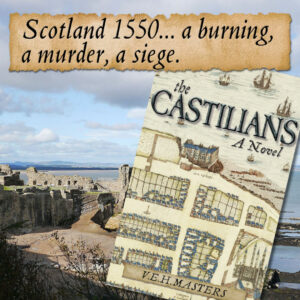 The Conversos – who were Jews who were forcibly converted – is set in Antwerp and also explores the grim reality of life on the galleys. As one reader said in a Goodreads review, ‘…I will never forget the horrors of being a galley slave’, which was great feedback.
The Conversos – who were Jews who were forcibly converted – is set in Antwerp and also explores the grim reality of life on the galleys. As one reader said in a Goodreads review, ‘…I will never forget the horrors of being a galley slave’, which was great feedback.
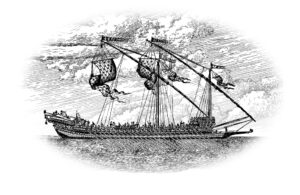 The books are set during the Reformation and Counter Reformation and inevitably shifts in religion form a strong theme. Will is a Protestant, Bethia a Catholic and her husband a Converso. For instance in the third in series, The Apostates, the family find themselves in Catholic Venice where Jews can live openly (unlike Antwerp) and wealthy Conversos are welcomed but where it’s definitely not safe to be Protestant. The whole series focuses on whether the strength of family loyalty can overcome all, regardless of faith.
The books are set during the Reformation and Counter Reformation and inevitably shifts in religion form a strong theme. Will is a Protestant, Bethia a Catholic and her husband a Converso. For instance in the third in series, The Apostates, the family find themselves in Catholic Venice where Jews can live openly (unlike Antwerp) and wealthy Conversos are welcomed but where it’s definitely not safe to be Protestant. The whole series focuses on whether the strength of family loyalty can overcome all, regardless of faith.
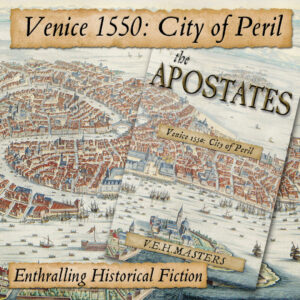 2. Familists is an unusual word. Where did the title come from and what’s its significance?
2. Familists is an unusual word. Where did the title come from and what’s its significance?
Familists, also known as the Family of Love, were a group influenced by the teachings of Henrik Niclaes in the 1550s. They prioritised a deep spiritual connection with God, considered religious rituals an unnecessary distraction (be they Catholic, Protestant, Jewish or Moslem) and emphasised the significance of harmony. Niclaes taught that members of the group could overtly follow any religion because what truly mattered was the strength of family, including the servants, as a fellowship of peace coming together to make a connection with God through conversation, sharing and debate.
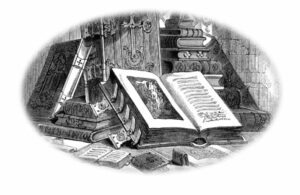 One of my characters meets Niclaes at the Frankfurt Book Fair (which remarkably has been held since the 1100s) and sees Familism as a way for his family of differing faiths to unite around a common bond – although it turns out not to be quite so straightforward in a world riven by the Reformation.
One of my characters meets Niclaes at the Frankfurt Book Fair (which remarkably has been held since the 1100s) and sees Familism as a way for his family of differing faiths to unite around a common bond – although it turns out not to be quite so straightforward in a world riven by the Reformation.
3. The Familists is partly set in Constantinople. How did that come about?
Conversos were fleeing there in increasing numbers by the mid 1500s. Venice was no longer a safe haven as a new Pope came to power who hated them with a passion, was intent on seizing all they owned and ramped up the Inquisition. Both Jews and Christians could live in Istanbul without fear of religious persecution. They weren’t treated as equals but some ended up in very powerful positions as advisers to the sultan and physicians in his court. Most famously Don Joseph Nasi, who Marlowe is said to have based his play The Jew of Malta on. He appears in both The Apostates and The Familists. Of even greater interest to me was his aunt Dona Gracia who helped countless Conversos flee from Portugal and Antwerp.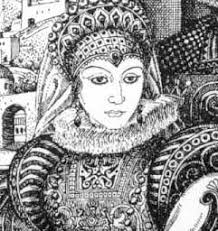 I hadn’t realised until I wrote this book how interlinked politics and trading within Europe was with the Ottoman Empire. It was absolutely fascinating and of course gave me the perfect excuse to visit Istanbul.
I hadn’t realised until I wrote this book how interlinked politics and trading within Europe was with the Ottoman Empire. It was absolutely fascinating and of course gave me the perfect excuse to visit Istanbul.
 4. What are you working on now?
4. What are you working on now?
The final book in the series. It’s set in Scotland so my characters will come full circle back to their homeland. I’m looking forward to researching life in Scotland of 1586 and the resources are all on my doorstep which will make it a lot easier. It’s due out a year from now.
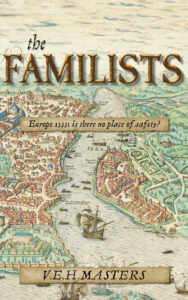
Italy 1555.
Bethia and her growing family find themselves in the midst of the Inquisition’s vicious attack on Jews and Conversos. Despite Bethia’s commitment to her Catholic faith, her greater loyalty to her Converso husband forces them to flee onwards to Constantinople – but will it be any safer? For Will, Bethia’s brother, it’s equally perilous to be a Protestant. Caught up in France’s religious turmoil, where many are burned for their faith, his choice is stark; fight or accept a martyr’s death. Set amid the treacherous landscape of Reformation Europe, where faiths divide and shifting allegiances dictate survival, can the strength of family endure?
BUY THE BOOK Click Here to Buy in US Canada Australia UK
Praise for The Familists
‘A worthy continuation of the Seton Chronicles, packed with personal, political and religious tension and intrigue’ Margaret Skea, award winning author.
‘having followed this intimate and remarkable story so closely it’s impossible not to feel like one of the family.’ Esther Mendelssohn
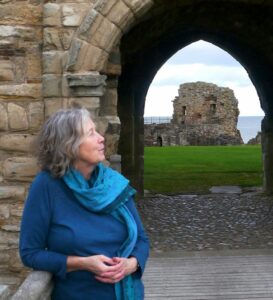
V.E.H. (Vicki) Masters writes historical fiction set in the 1500s. Her books are regularly on the Amazon Bestseller List, and she is the winner of the Barbara Hammond Trophy. She has a BA in History and Sociology and an MSc with distinction. For many years she worked in the NHS as an organisational development manager and latterly ran her own business as an executive coach and team development specialist. Now she writes full time which, when it’s
going well, she loves. You’ll find a couple of free short stories which tells more of the era.
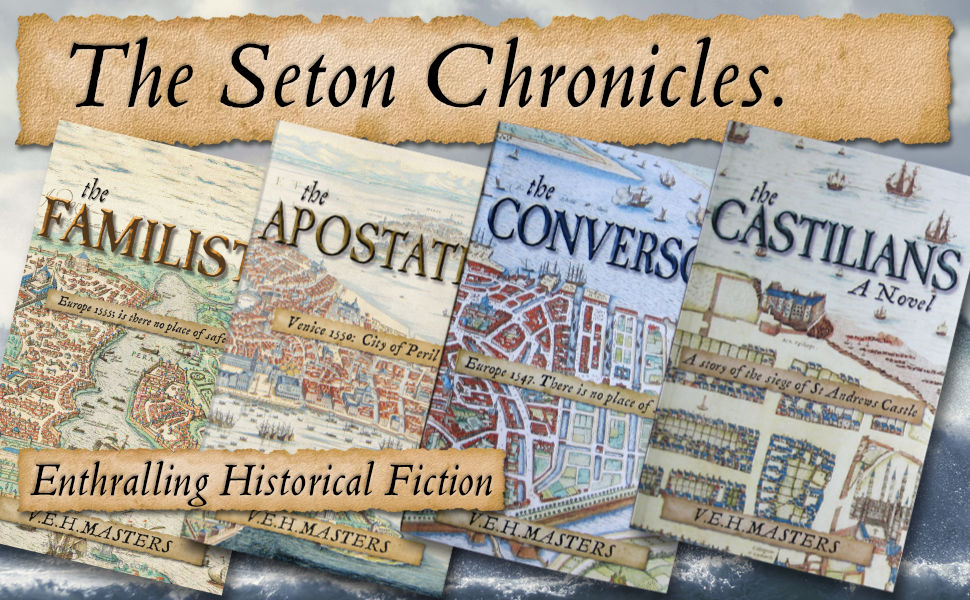

Thanks so much Deborah for hosting me on your wonderful blog. Much appreciated.